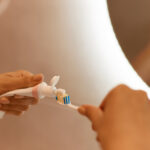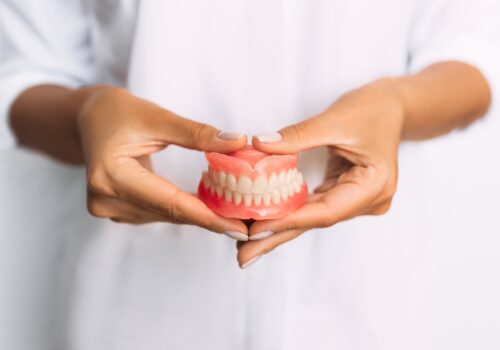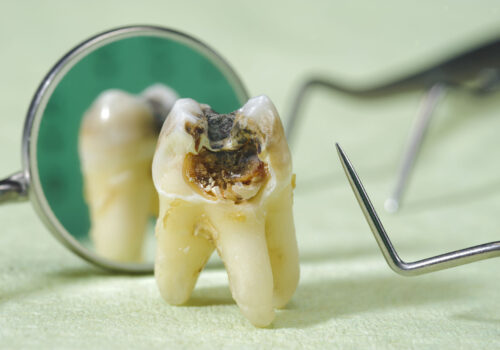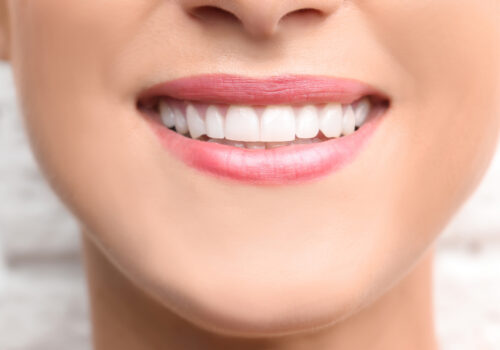
Everyone who has teeth is at risk of getting cavities, but the following factors can increase risk.
Risk factors of Cavities
Tooth location
Decay most often occurs in your back teeth (molars and premolars). These teeth have lots of grooves, pits and crannies, and multiple roots that can collect food particles. As a result, they’re harder to keep clean than your smoother, easy-to-reach front teeth.
Certain foods and drinks
Foods that cling to your teeth for a long time — such as milk, ice cream, honey, sugar, soda, dried fruit, cake, cookies, hard candy and mints, dry cereal, and chips — are more likely to cause decay than foods that are easily washed away by saliva.
Frequent snacking or sipping
When you steadily snack or sip sugary drinks, you give mouth bacteria more fuel to produce acids that attack your teeth and wear them down. And sipping soda or other acidic drinks throughout the day helps create a continual acid bath over your teeth.
Bedtime infant feeding
When babies are given bedtime bottles filled with milk, formula, juice or other sugar-containing liquids, these beverages remain on their teeth for hours while they sleep, feeding decay-causing bacteria. This damage is often called baby bottle tooth decay. Similar damage can occur when toddlers wander around drinking from a sippy cup filled with these beverages.
Inadequate brushing
If you don’t clean your teeth soon after eating and drinking, plaque forms quickly and the first stages of decay can begin.
Not getting enough fluoride
Fluoride, a naturally occurring mineral, helps prevent cavities and can even reverse the earliest stages of tooth damage. Because of its benefits for teeth, fluoride is added to many public water supplies. It’s also a common ingredient in toothpaste and mouth rinses. But bottled water usually does not contain fluoride.
Younger or older age
In the United States, cavities are common in very young children and teenagers. Older adults also are at higher risk. Over time, teeth can wear down and gums may recede, making teeth more vulnerable to root decay. Older adults also may use more medications that reduce saliva flow, increasing the risk of tooth decay.
Dry mouth
A dry mouth is caused by a lack of saliva, which helps prevent tooth decay by washing away food and plaque from your teeth. Substances found in saliva also help counter the acid produced by bacteria. Certain medications, some medical conditions, radiation to your head or neck, or certain chemotherapy drugs can increase your risk of cavities by reducing saliva production.
Worn fillings or dental devices
Over the years, dental fillings can weaken, begin to break down or develop rough edges. This allows plaque to build up more easily and makes it harder to remove. Dental devices can stop fitting well, allowing decay to begin underneath them.
Heartburn. Heartburn or gastroesophageal reflux disease (GERD) can cause stomach acid to flow into your mouth (reflux), wearing away the enamel of your teeth and causing significant tooth damage. This exposes more of the dentin to attack by bacteria, creating tooth decay. Your dentist may recommend that you consult your doctor to see if gastric reflux is the cause of your enamel loss.
Eating disorders
Anorexia and bulimia can lead to significant tooth erosion and cavities. Stomach acid from repeated vomiting (purging) washes over the teeth and begins dissolving the enamel. Eating disorders also can interfere with saliva production.
Complications

Cavities and tooth decay are so common that you may not take them seriously. And you may think that it doesn’t matter if children get cavities in their baby teeth. However, cavities and tooth decay can have serious and lasting complications, even for children who don’t have their permanent teeth yet.
Complications of cavities may include:
- Pain.
- Tooth abscess.
- Swelling or pus around a tooth.
- Damage or broken teeth.
- Chewing problems.
- Positioning shifts of teeth after tooth loss.
When cavities and decay become severe, you may have:
- Tooth pain that interferes with daily living.
- Weight loss or nutrition problems from painful or difficult eating or chewing.
- Tooth loss, which may affect your appearance, as well as your confidence and self-esteem.
- In rare cases, a tooth abscess — a pocket of pus that’s caused by bacterial infection — which can lead to more serious or even life-threatening infections.







Leave a Reply